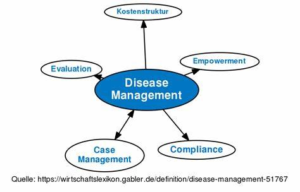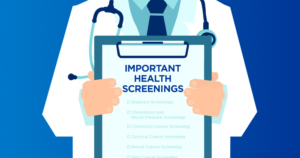- Introduction to Disease Prevention and Management

Disease prevention and management are vital in maintaining overall health and wellbeing. By adopting wellbeing preventive measures and effective management strategies, people can diminish their risk of creating different sicknesses and better control existing ailments. In this aide, we’ll investigate strategies hints and strategies for illness avoidance, the board, wellbeing screenings, wellbeing, and early discovery.
- Prevention Tips for Healthy Living

Healthy Lifestyle Choices
Pursuing a solid way of life decisions is the underpinning of illness counteraction. This incorporates eating a decent eating regimen, remaining genuinely dynamic, keeping a stable weight, getting sufficient rest, and staying away from hurtful propensities like smoking and extreme liquor utilization.
Vaccinations and Immunizations
Vaccinations and immunizations are essential for preventing infectious diseases. Keeping up to date with recommended vaccines protects individuals and helps prevent the spread of contagious illnesses within communities.
Regular Exercise and Physical Activity
Regular exercise and physical activity boost overall health and help prevent chronic conditions such as heart disease, diabetes, and obesity. Hold back to 150 minutes of moderate or 75 minutes of vigorous exercise weekly.
- Disease Management Strategies

Medication Adherence
Adhering to prescribed medications is crucial for managing chronic conditions effectively. Follow your healthcare provider’s instructions carefully; furthermore, make it a point to ask questions or look for an explanation if you have concerns about your medications.
Lifestyle Modifications
Notwithstanding drugs, way-of-life alterations like dietary changes, workouts, stress the board, and stopping smoking can play a massive part in overseeing constant sicknesses like hypertension, diabetes, and asthma.
Stress Management Techniques
Ongoing pressure can debilitate the insusceptible framework and compound medical issues. “To lessen pressure and advance unwinding,” it very well may be helpful to use pressure-the-board strategies like profound breathing, reflection, rehearsing yoga, and investing energy in nature.
- Importance of Health Screenings

Types of Health Screenings
Health screenings are tests or exams that detect early signs of diseases or conditions before symptoms appear. Standard screenings include blood pressure checks, cholesterol tests, mammograms, Pap smears, colonoscopies, and blood glucose tests.
Frequency and Timing
The frequency and timing of health screenings depend on age, gender, family history, lifestyle factors, and existing health conditions. Counsel your medical services supplier to figure out which screenings are suitable for you and how frequently they should be performed.
Benefits of Early Detection
Early recognition of sicknesses can further develop therapy results and improve the probability of fruitful recuperation. By identifying health problems in their early stages, individuals have more options for treatment and may be able to avoid complications or more extreme fitness issues.
- Early Detection of Diseases

Everyday Warning Signs
Being aware of common warning signs and symptoms of diseases can prompt individuals to seek medical attention promptly. Symptoms such as persistent pain, unusual lumps or swelling, changes in bowel or bladder habits, unexplained weight loss, and chronic fatigue should not be ignored.
Importance of Regular Check-ups
Regular check-ups with healthcare providers are essential for monitoring overall health and detecting potential health problems early on. Be sure to see a doctor before you’re sick; schedule routine check-ups and screenings as suggested in light of your age, orientation, and clinical history.
Role of Self-Examinations
Performing regular self-examinations, including breast self-exams and skin checks, is essential. It empowers individuals to monitor their health and detect abnormalities early. Learn to perform self-exams promptly and adequately report any progressions or worries to your medical care supplier.
- Managing Chronic Conditions
Chronic Disease Management Plans
Managing chronic conditions requires a comprehensive approach that may include medication, lifestyle modifications, regular monitoring, and ongoing support from healthcare providers. Work with your medical care group to foster a customized administration plan that addresses your issues and objectives.
Patient Education and Empowerment
Teaching patients about their medical issues engages them in effectively dealing with well-being and settling well-being on informed choices. Ask questions, seek reliable information, and participate in disease management programs or support groups to learn more about your condition and how to manage it effectively.
Support Networks and Resources
Looking for help from family, companions, and local area assets can make managing chronic conditions less challenging. Joining support groups, connecting with others with similar experiences, and accessing online resources can provide valuable encouragement, information, and practical tips for coping with chronic illnesses.
- Preventive Healthcare in Different Age Groups
Children and Adolescents
Preventive healthcare for children and adolescents includes routine well-child visits, vaccinations, developmental screenings, and training about sound propensities like legitimate sustenance, ordinary active work, and outstanding cleanliness rehearses.
Adults
Adults should prioritize preventive healthcare by scheduling regular check-ups, screenings, and immunizations as their healthcare providers recommend. It centers around keeping a sound way of life, overseeing pressure, and tending to gamble with factors for ongoing sicknesses, such as hypertension, elevated cholesterol, and adiposity.
Seniors
Seniors should continue prioritizing preventive healthcare as they age, including regular health screenings, vaccinations, and discussions with healthcare providers about age-related health concerns. Focus on maintaining mobility, cognitive function, and independence through regular exercise, social engagement, and healthy living habits.
- Promoting Disease Prevention in Communities
Public Health Initiatives
Public health initiatives are critical in promoting disease prevention and improving community health outcomes. These initiatives may include health education campaigns, vaccination programs, community-based screenings, and policies that support healthy environments.
Access to Healthcare Services
Access to affordable healthcare services is essential for disease prevention and management. Efforts to improve access may include expanding healthcare coverage, increasing the availability of primary care services, and reducing barriers to care for
Underserved populations.
Education and Awareness Campaigns
Education and awareness campaigns raise awareness about the importance of disease prevention, encourage healthy behaviors, and provide information about available resources and services. These campaigns may target specific populations or address prevalent health issues within communities.
- The Role of Healthcare Providers
Primary Care Physicians
Essential consideration: doctors assume a focal part in disease prevention and management by providing preventive services, conducting health screenings, managing chronic conditions, and coordinating care with specialists and other healthcare providers.
Specialists
Specialists, such as cardiologists, endocrinologists, oncologists, and rheumatologists, give particular consideration to people with explicit medical issues or complex medical needs. Specialists working collaboratively with primary care providers help diagnose, treat, and manage diseases effectively.
Allied Healthcare Professionals
Allied healthcare professionals, including nurses, pharmacists, dietitians, and physical therapists, support disease prevention and management by providing patient education, counseling, medication management, rehabilitation, and other essential healthcare services.
- Incorporating Prevention into Daily Life
Building Healthy Habits
Building healthy habits into daily life is vital to disease prevention and management. Focus on making small, sustainable changes such as eating nutritious foods, staying active, managing stress, getting enough sleep, and avoiding harmful substances.
Creating a Supportive Environment
Surround yourself with supportive people and environments that promote healing and wellbeing. Seek wellbeing friends, family members, and communities that encourage healthy behaviors and provide encouragement, accountability, and motivation to stay on track.
Making Informed Decisions
Stay informed about health issues, treatment options, and preventive measures by seeking reliable information from reputable sources such as healthcare providers, government agencies, and professional organizations. Ask questions, weigh the pros and cons, and make decisions that align with your values and goals.
Conclusion
Disease prevention and management are essential to maintaining overall health and wellbeing at every stage of life. By adopting preventive measures, managing chronic conditions effectively, and seeking early detection and treatment, individuals can optimize their health outcomes and enjoy a higher quality of life.
FAQs
- What are some simple ways to prevent diseases?
Basic ways of forestalling illnesses incorporate eating a fair eating routine, remaining truly dynamic, getting sufficient rest, staying away from tobacco and unnecessary liquor, and rehearsing great cleanliness.
- How can I manage a chronic condition effectively?
Effective management of chronic conditions involves following your healthcare provider’s treatment plan, taking prescribed medications as directed, making healthy lifestyle choices, monitoring your health regularly, and seeking support from healthcare professionals and support networks.
- Why are health screenings important for disease prevention?
Health screenings are essential for disease prevention because they can recognize early indications of illnesses or conditions before symptoms appear, allowing for early intervention, treatment, and better health outcomes.
- At what age should I start getting regular health check-ups?
Regular health check-ups are essential at every age, starting from childhood. Talk with your medical services supplier to decide the suitable frequency and timing of check-ups based on your health needs and risk factors.
- How can communities support disease prevention efforts?
Communities can support disease prevention efforts by promoting healthy behaviors, providing access to healthcare services, implementing policies supporting health and wellbeing, and raising awareness about health issues through education and advocacy.

